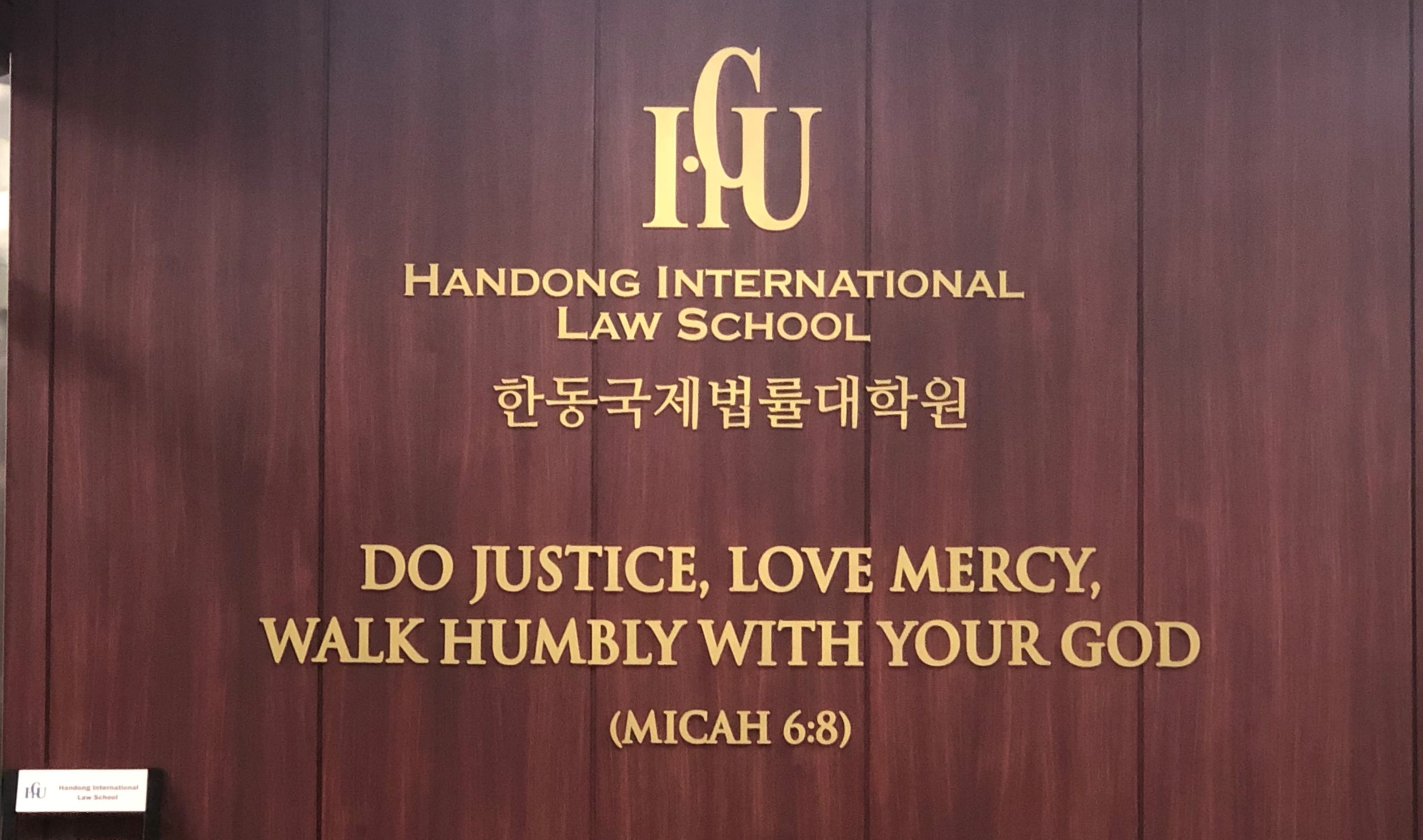Post by: Nigelle Ferrer

Growing up in an Asian household while being raised in the States has been a unique balance of western and eastern principles. One looks towards individualistic rights and freedoms, the other looks towards the benefit of the community as a whole. One values equality across ages and titles, the other leans towards recognizing those in seniority and hierarchy. Both have their pros and cons, and both can learn from each other. Living with this dual perspective, I knew this perspective was one I wanted to develop with a legal and policy mindset.
I have been blessed with the opportunity to do so by serving as a summer intern at Handong International Law School (HILS) and actually traveling to Pohang, South Korea, as the world recovers from the COVID-19 pandemic. Right away coming out of quarantine, my fellow intern and I had the pleasure of going out to dinner and exploring the area with a few of the professors and their families. It’s been five days since I have been in Pohang and I am only scratching the surface to the shift in perspectives that they themselves had after living abroad for a number of years. A few existing policies that seemed normal in the States, such as those surrounding our citizenship and immigration process, lead to more questions.
Along with those discussions, I’ve also been assigned multiple projects that help continue to refine my understanding of these differing principles in the legal field. One of our projects consists of researching individual U.S. State COVID policies throughout the United States and see how the restrictions have impacted their economies in order to serve as a reflection for Mongolia as they move forward with their COVID restriction policies. Another research project I was given was to look at is how law schools in the United States have structured their legal clinics to serve as a reference in furthering HILS own legal clinic. Overall, it is seeing where we fall short and how can we learn from others’ accomplishments or mistakes so that we can also progress further.
But in tandem with learning from others, we need to be able to teach others as well. On top of our legal research projects, we also have a few editorial projects. While the research has been conducted, we are responsible for reading through and making sure that the publications can be understood by a western audience. There are certain phrases and expressions that make sense for Koreans but will be lost in translation to others. This is where we can bridge between the two perspectives and help each side learn from each other.
As one who lives in these dual identities, this is an exciting journey to try and bring the two together over the next six weeks.
This post was written by a Center for Global Justice Intern. The views expressed in this post do not necessarily reflect those of Regent University, Regent Law School, or the Center for Global Justice.

